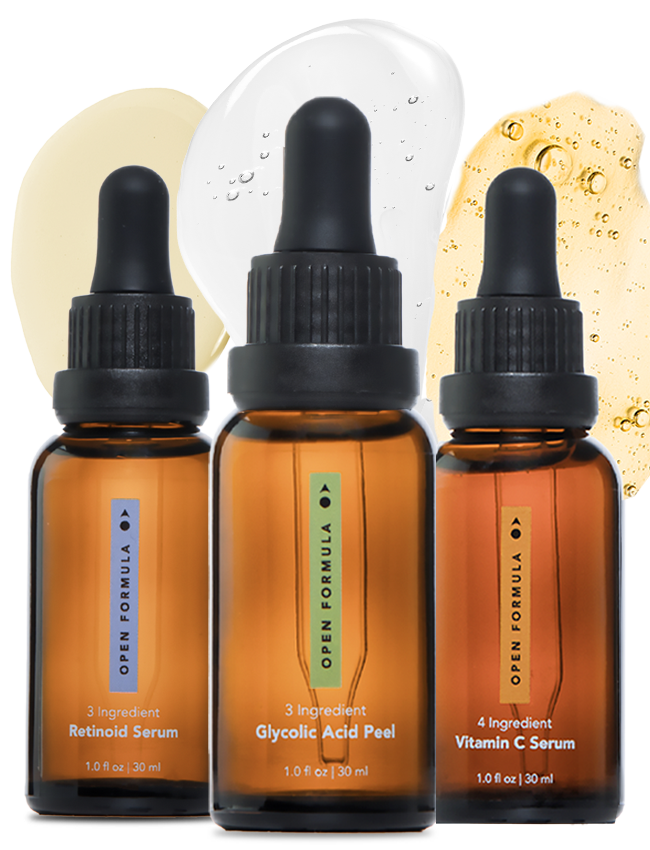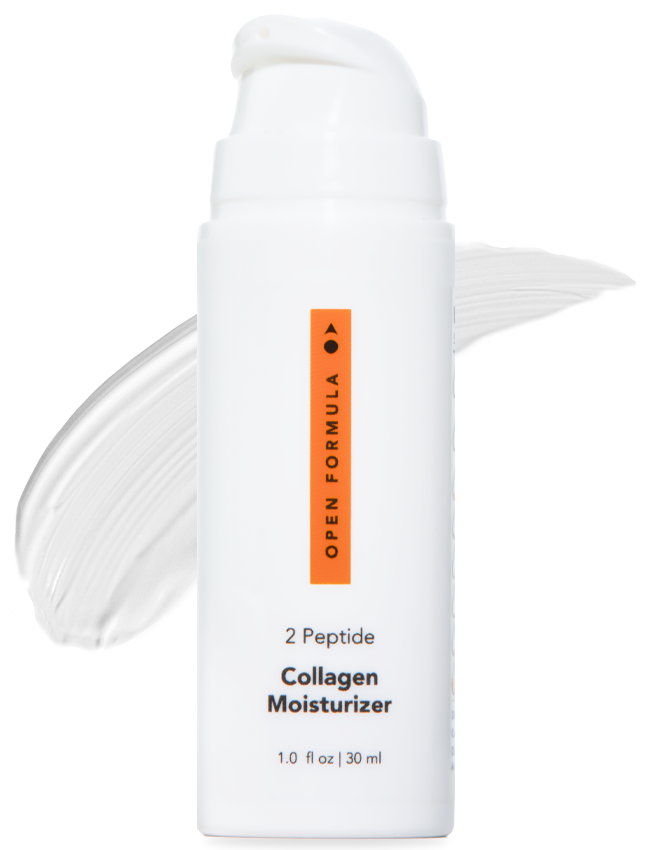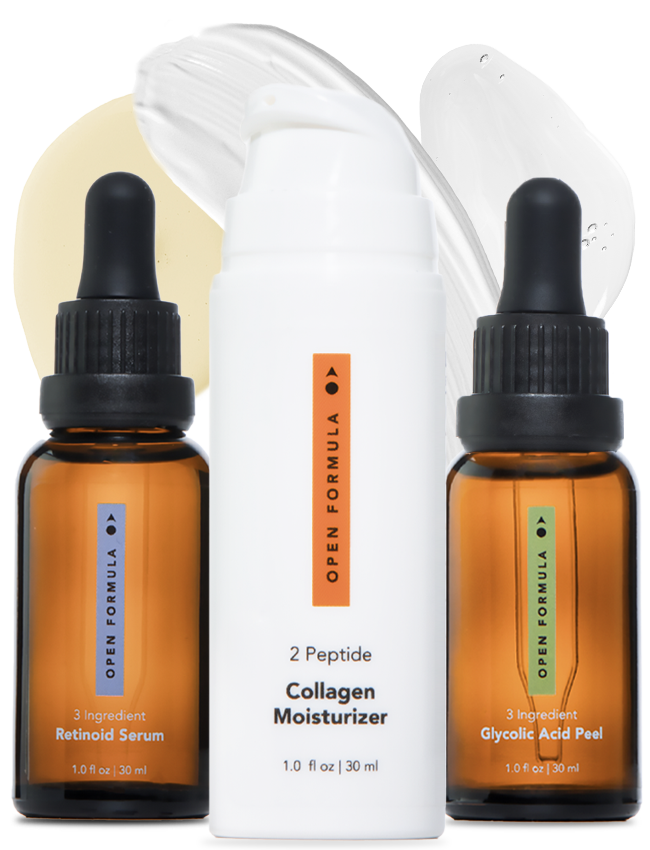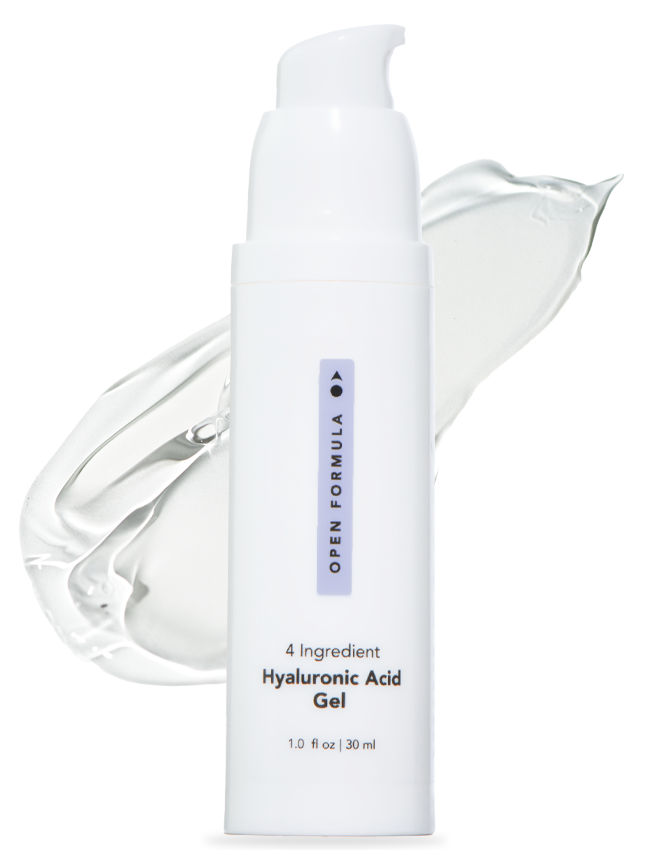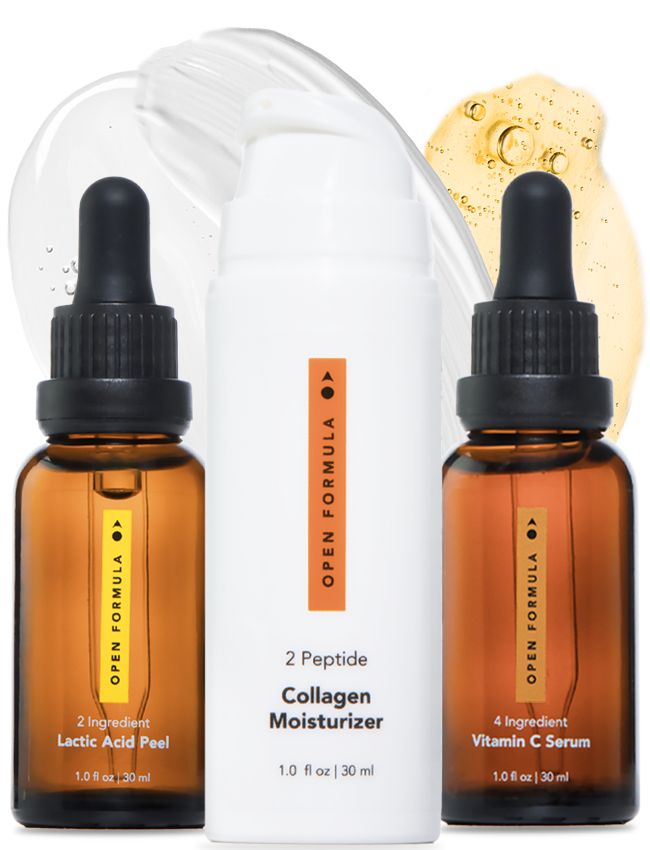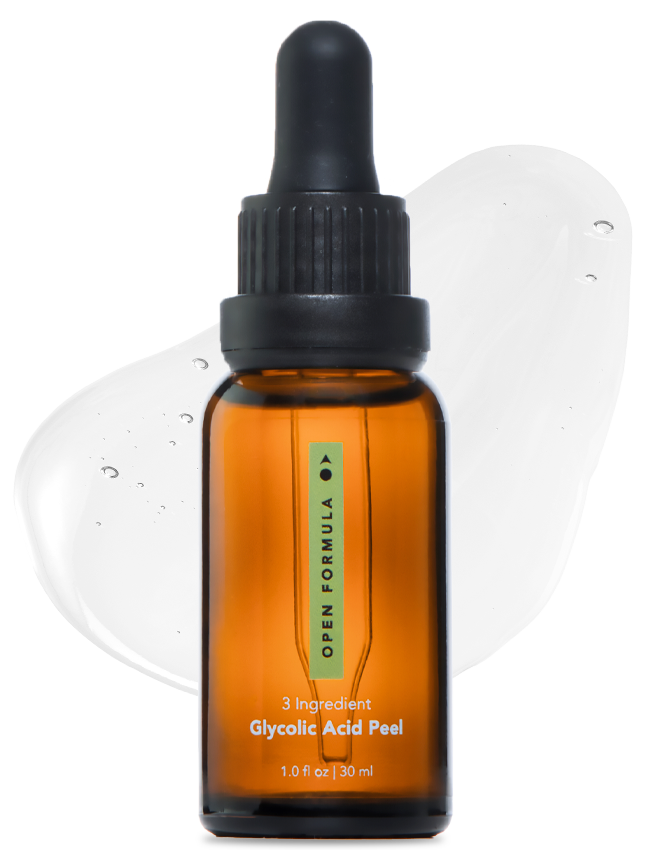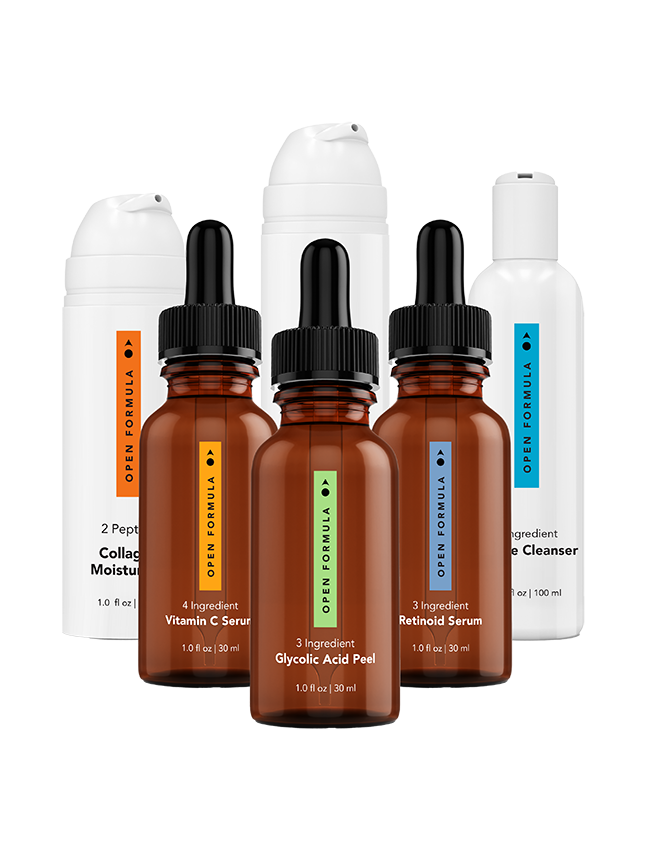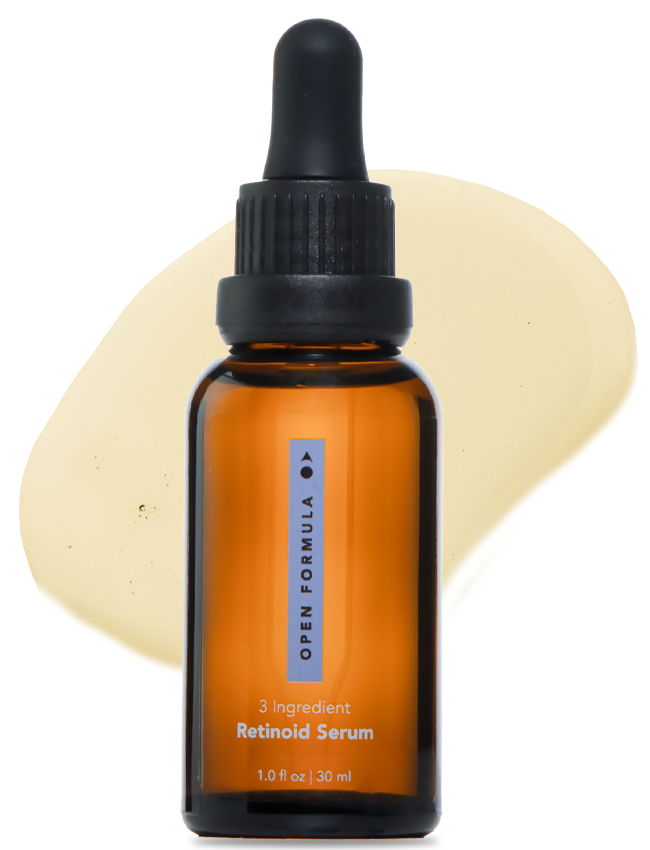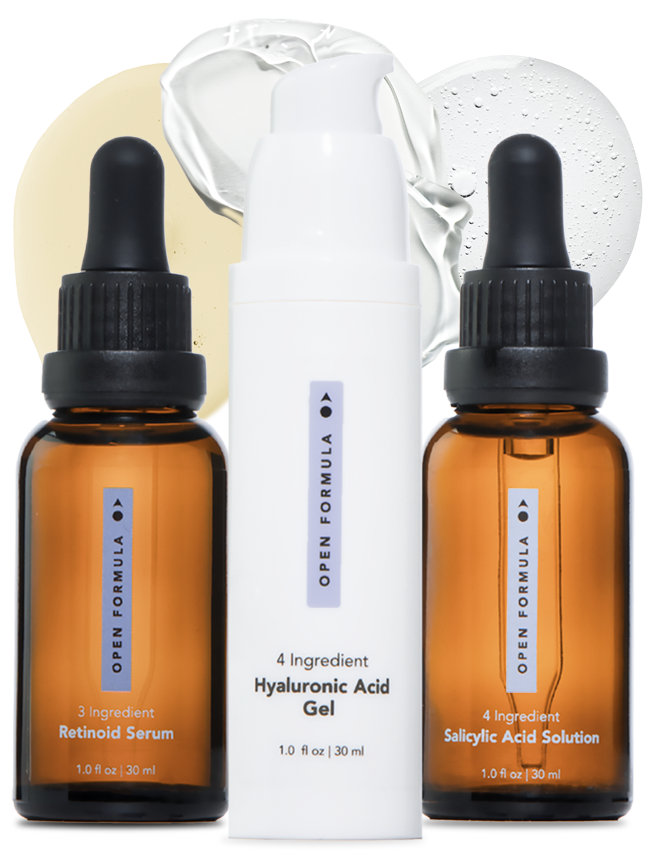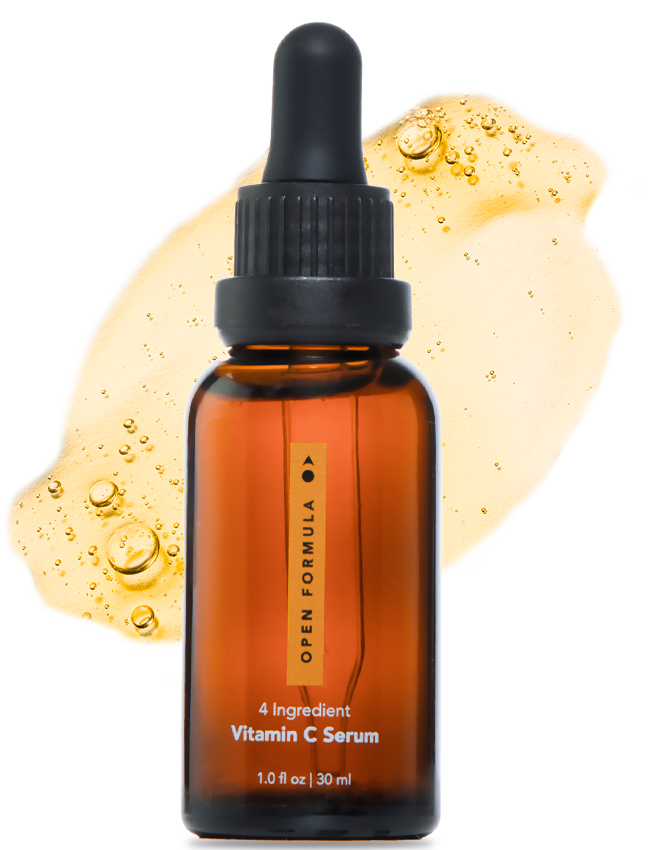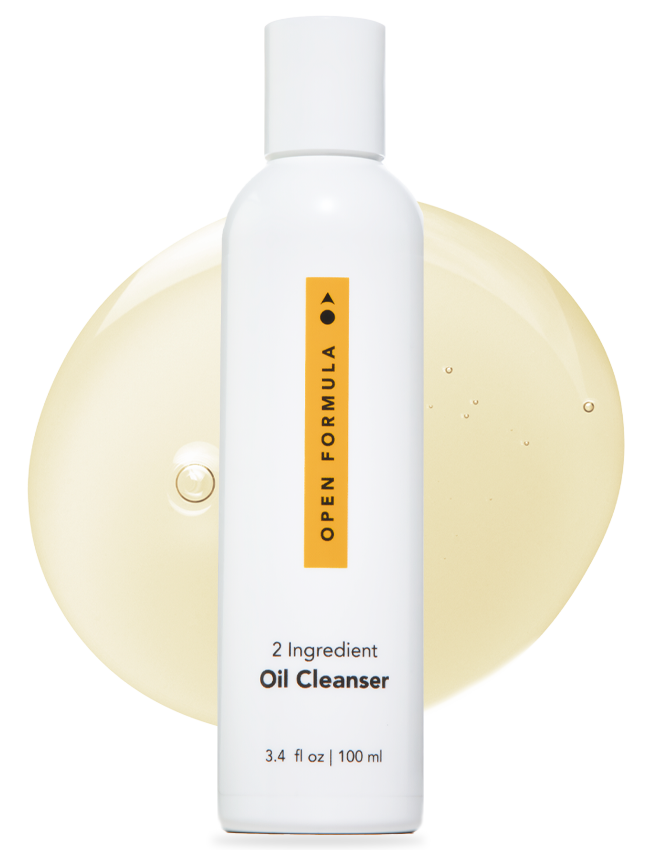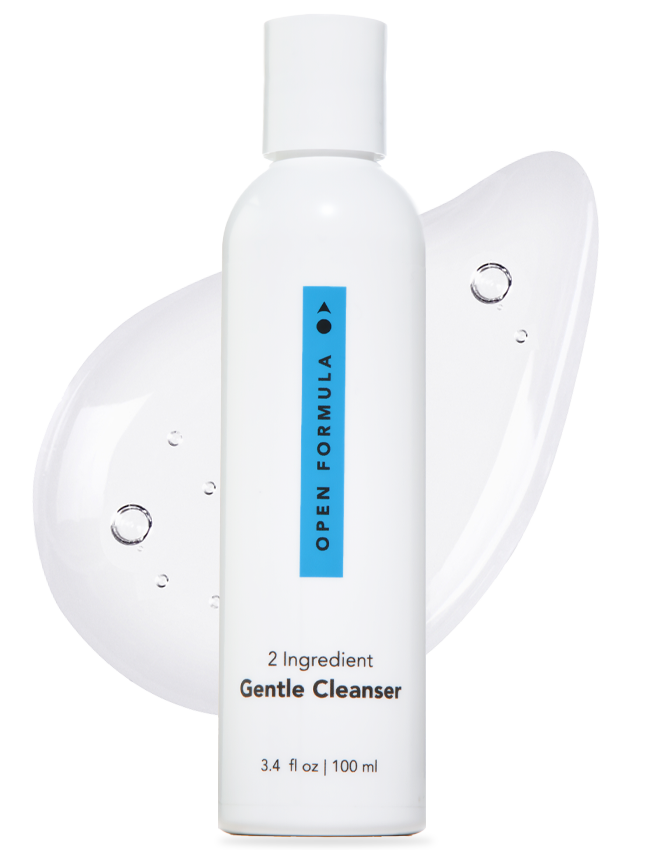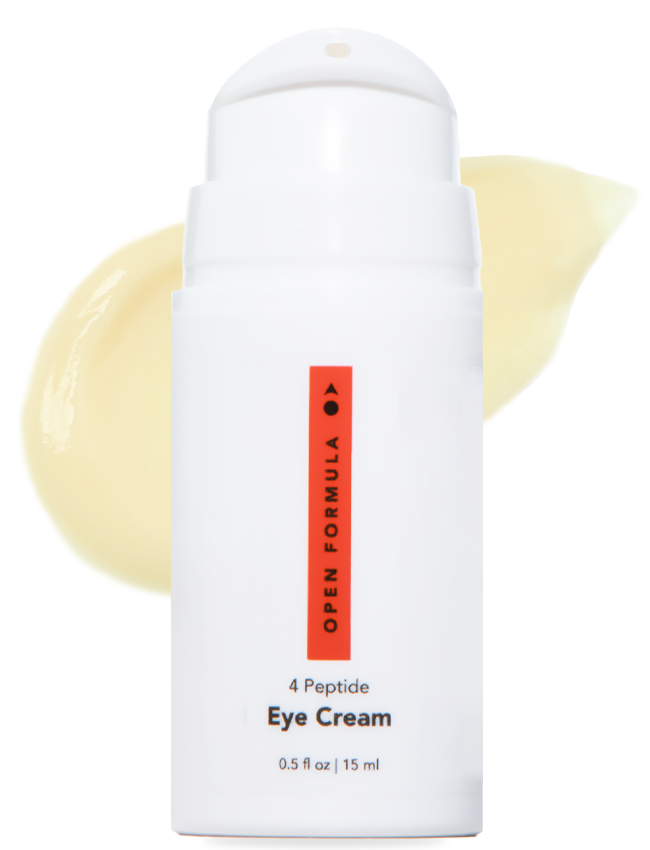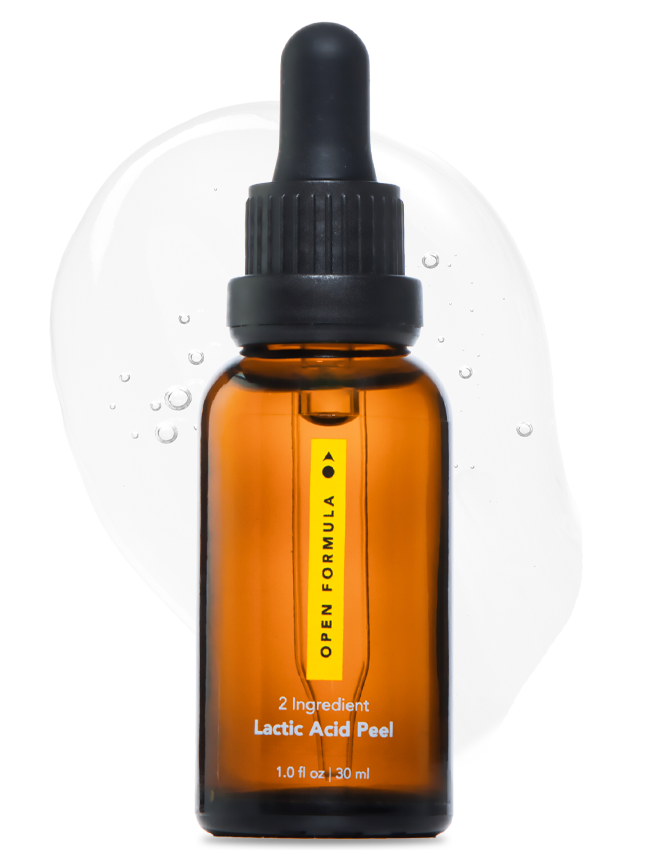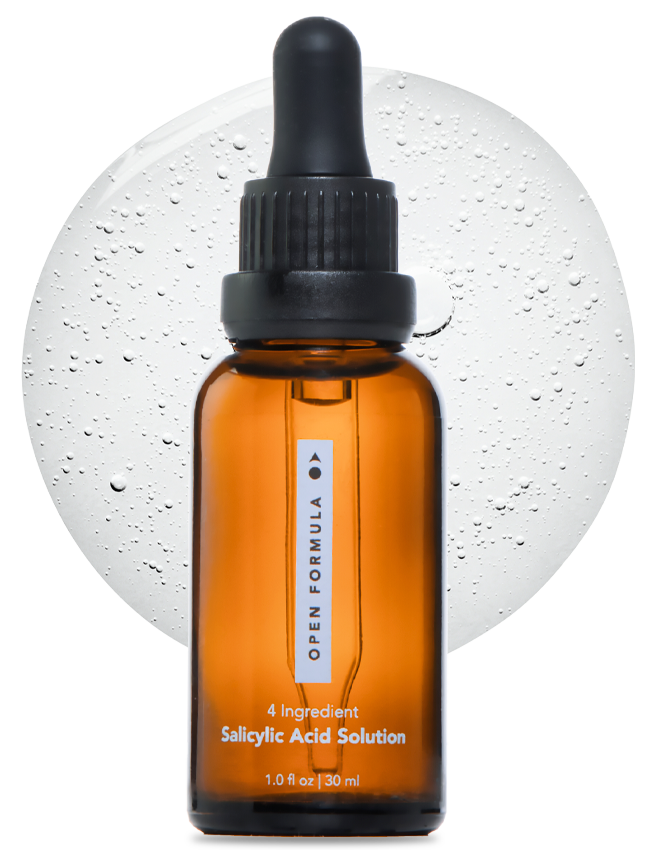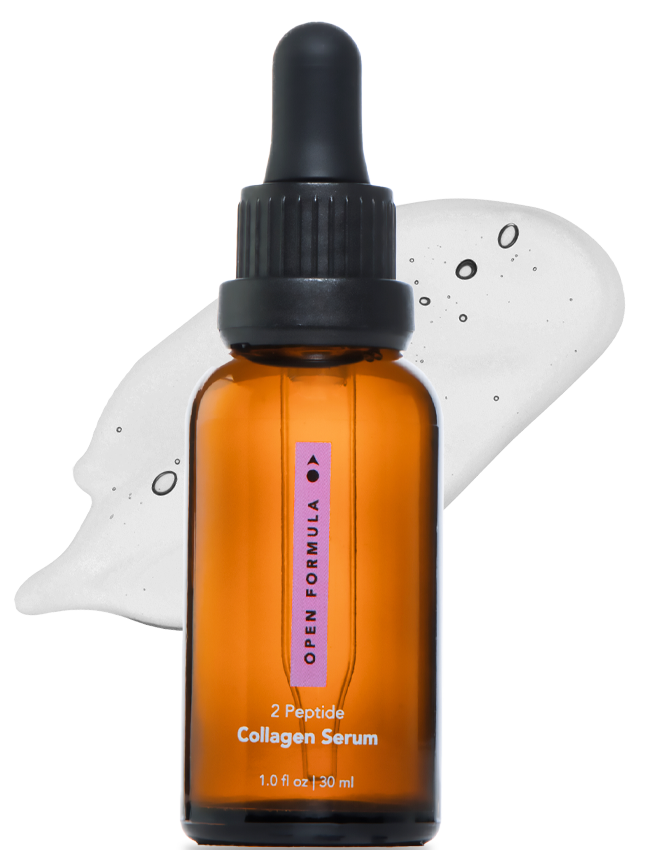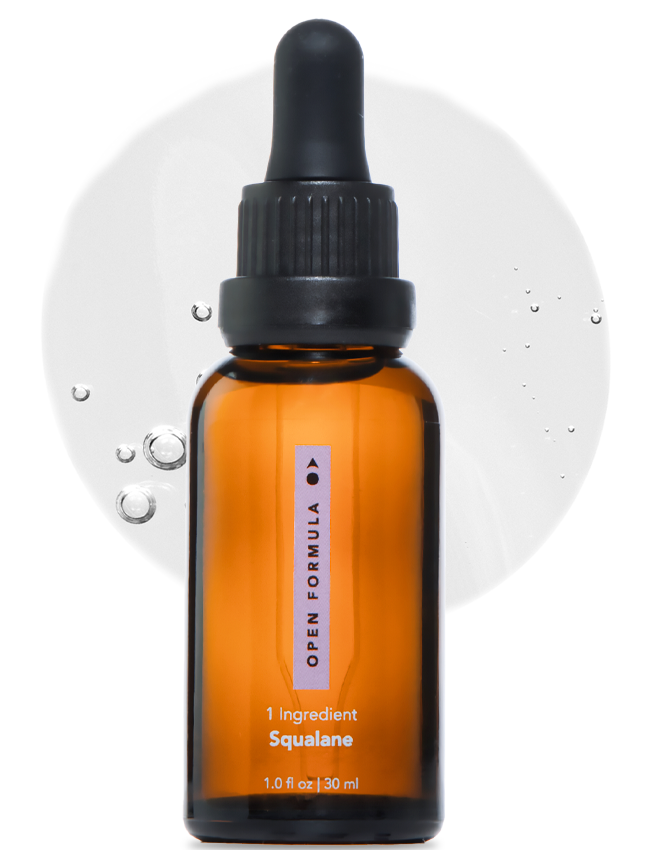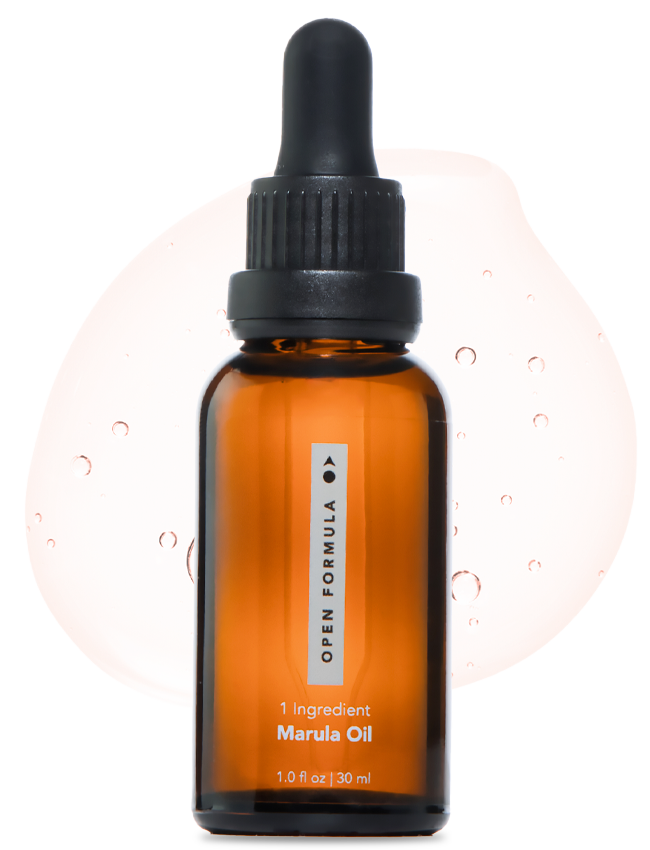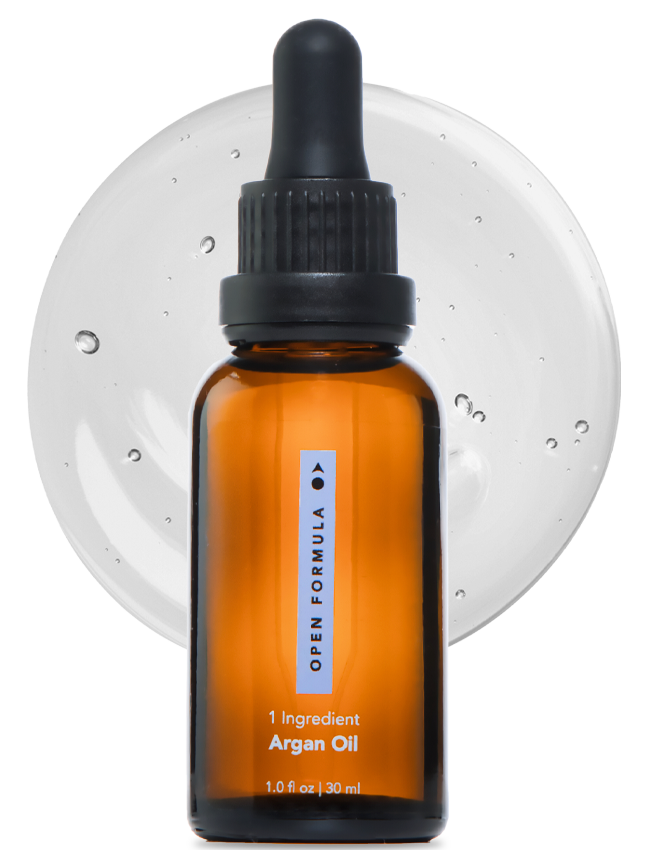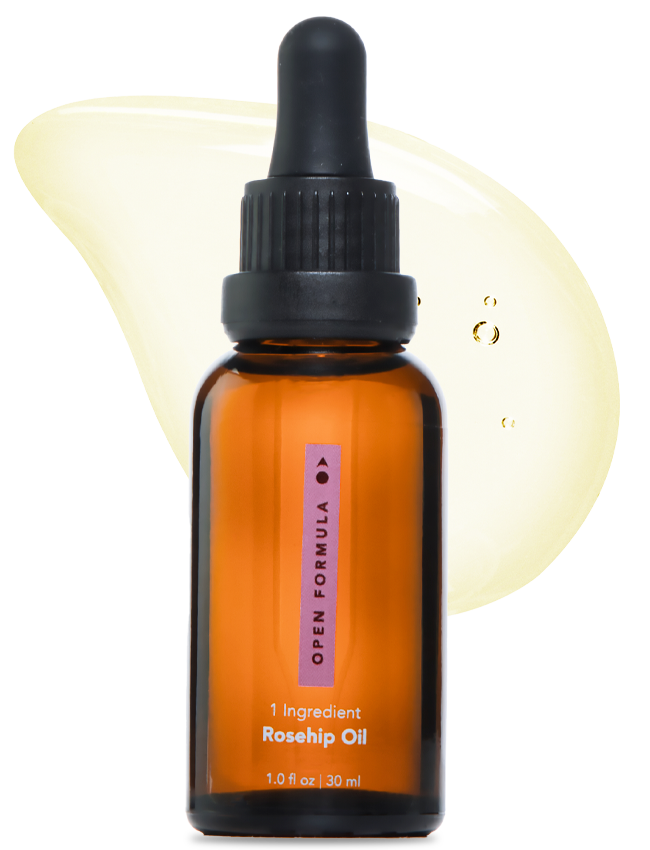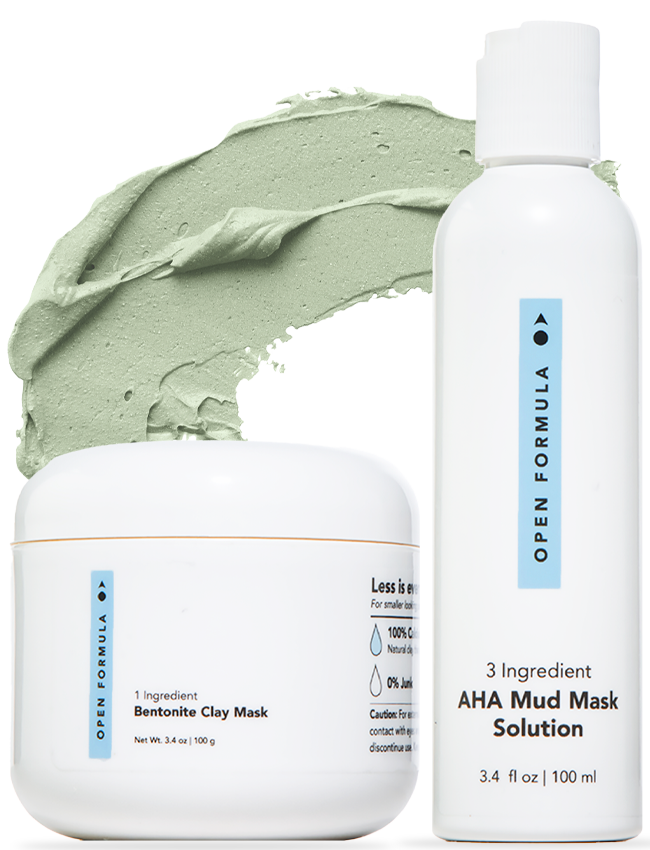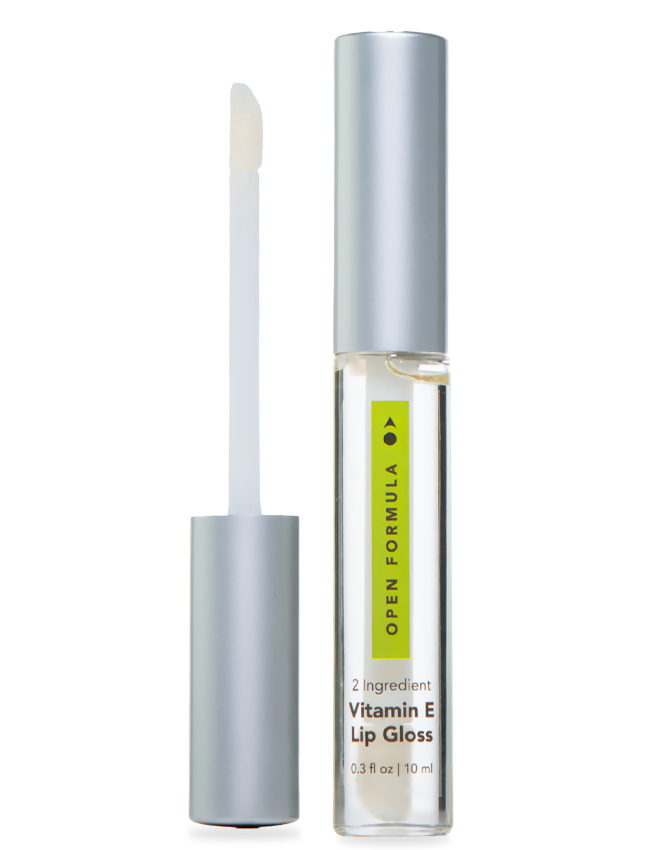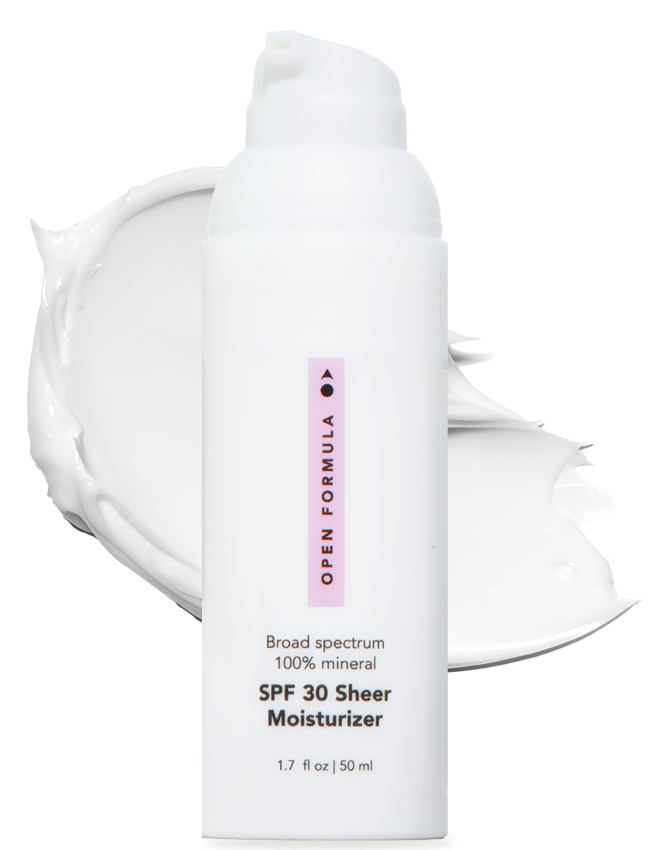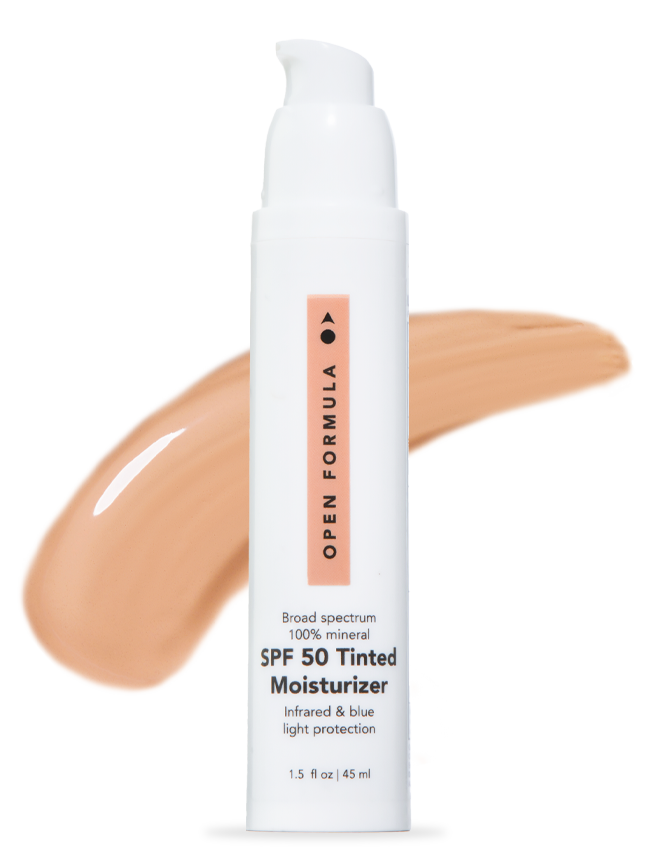Are you making the right choice of exfoliators for your skin?
You won’t want to miss out on the benefits of exfoliation, such as clearer skin, smoother skin texture, and in the long run, firmer skin. However, do all exfoliating peels, toners, and pads have these benefits?
It depends on the type of exfoliator in the formula. Salicylic acid and glycolic acid are two common exfoliators with similar but slightly different effects on the skin. How do you know which to choose?
Salicylic Acid versus Glycolic Acid: What Is the Difference?
When comparing salicylic acid versus glycolic acid, we must start with what kind of exfoliating acid they are. There are two broad ‘families’ of exfoliators: Beta Hydroxy Acids (BHAs) and Alpha Hydroxy Acids (AHAs).
Salicylic acid is part of the BHA family. This group of exfoliants are set apart from others because they can dissolve oil. This means they have greater abilities to actually enter the skin’s pores, dislodging oil-based gunk and excess sebum.
Glycolic acid is grouped as an AHA. These exfoliators are not oil soluble, so they cannot impact pores as BHAs can. However, they have more of an impact on skin tone, firmness, and radiance than BHAs.
What Are the Benefits of Glycolic Acid?
Glycolic acid is one of the most frequently used exfoliating acids in professional treatments and at-home skincare. That’s because it has a proven track record of excellent results for your skin!
Many scientific studies have proven glycolic acid’s benefits for reducing the look of sun damage, improving wrinkles, skin elasticity, tone and hydration.
Of all members of the AHA family, glycolic acid has the smallest molecular size. This means it easily absorbs into the skin, making glycolic acid a very effective skincare ingredient. The benefits of glycolic acid on the skin include:
- Lightening sun spots and age spots
- Reducing the look of post-acne marks
- Smoothing rough skin texture
- Firming skin and smoothing wrinkles
- Helping skin hold onto hydration
What Are the Benefits of Salicylic Acid?
Salicylic acid is another well-researched exfoliator with scientifically-proven benefits. Because it can dissolve oil, one of the primary uses of this exfoliator is to reduce breakouts and manage the appearance of pores.
Salicylic acid has what are called keratolytic benefits. In scientific terms, this refers to the ability to break down existing clogs in pores, unblocking them for clearer skin. To round up, here are the benefits of salicylic acid for the skin:
- Reduce existing breakouts
- Prevent new acne from forming
- Minimizing the look of enlarged pores
- Regulating facial oil production
Is Salicylic Acid Better Than Glycolic Acid?
When comparing salicylic acid versus glycolic acid, both benefit the skin differently. The salicylic acid versus glycolic acid comparison isn’t as straightforward as you might think! You may want to choose only one or both.
Salicylic acid is ideal if your primary skin goal is to reduce breakouts and manage oil production.
Glycolic acid helps to deal with lingering sun damage, age spots, pigmentation issues, and skin texture issues.
Can You Use Glycolic Acid with Salicylic Acid?
Yes! Even if your primary reason for exfoliating is for active acne, your skincare routine can benefit from glycolic acid if you already use salicylic acid.
Glycolic acid helps to lighten stubborn post-acne marks that are so common with breakout-prone skin.
One of the best ways to get both benefits in your skincare routine is to use salicylic acid in the morning and glycolic acid at night. You can adjust the frequency of both to suit your skin.
Salicylic Acid Versus Glycolic Acid: Important Takeaways
Trying to decide if salicylic acid versus glycolic acid is not always straightforward! Both of these exfoliators have unique benefits they bring to the skin. However, using both is a great way to have a well-rounded skincare routine that ensures you get the benefits of both worlds.







